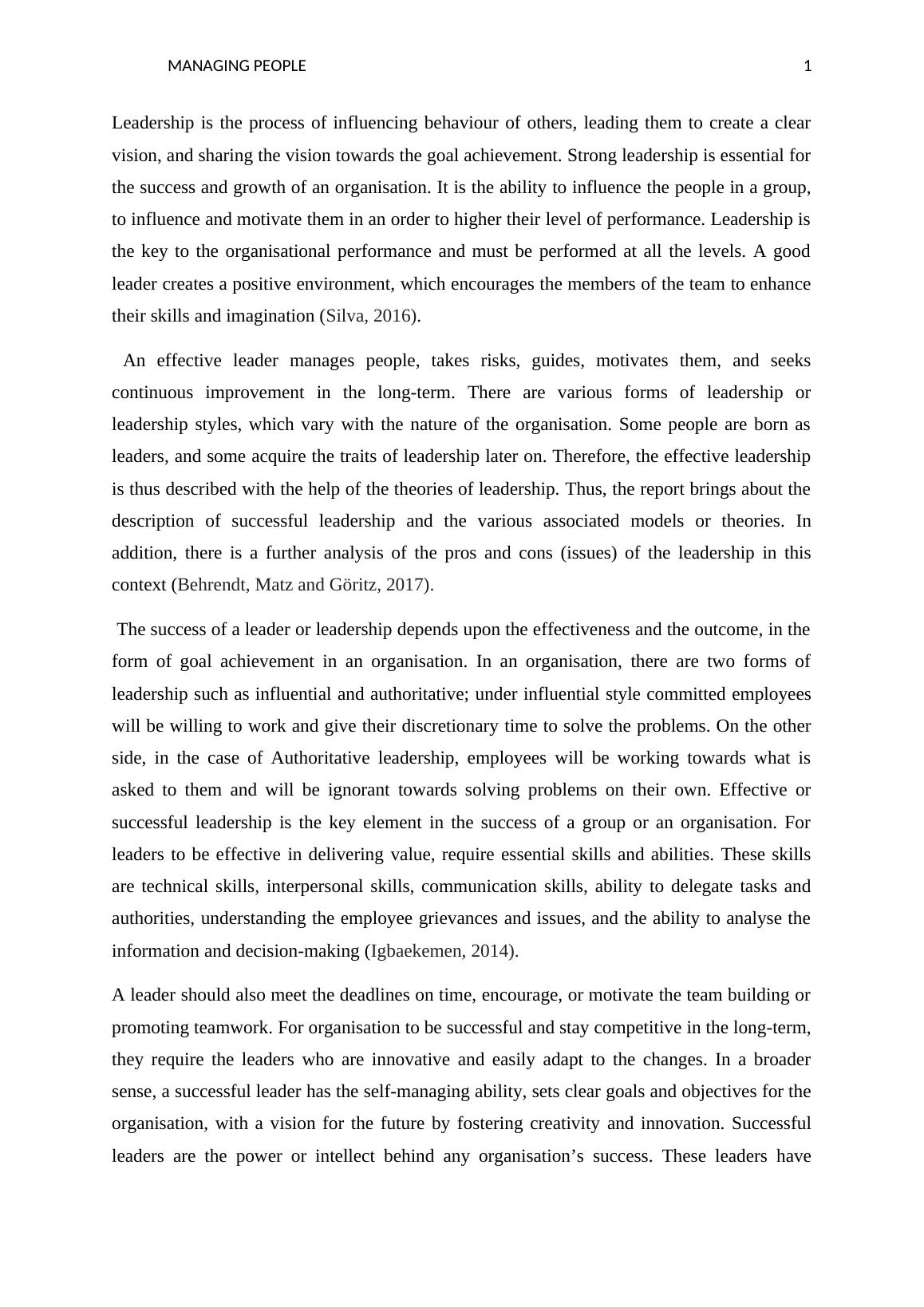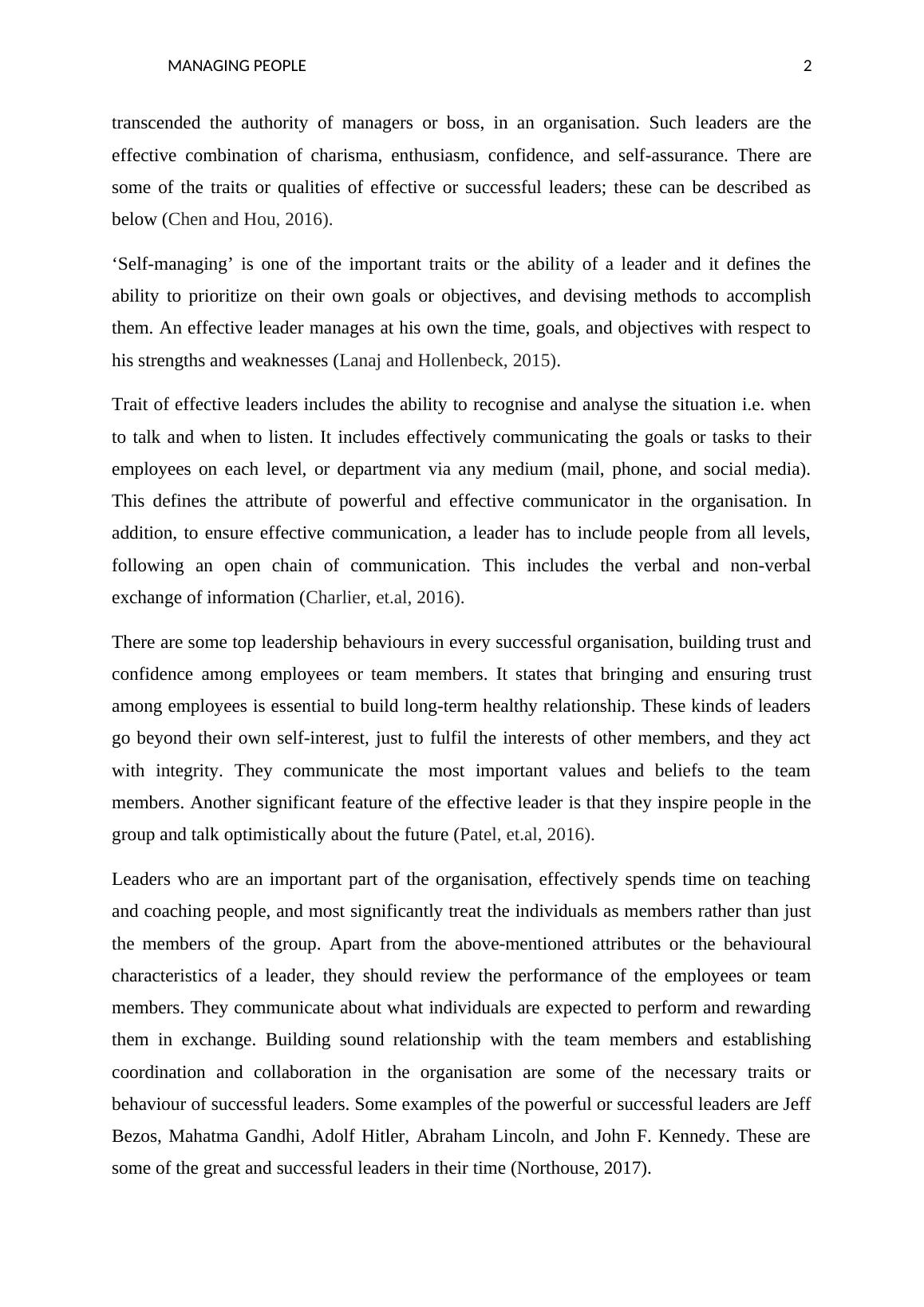Successful Leadership: Theories, Traits, and Criticisms
9 Pages3020 Words308 Views
Added on 2023-06-08
About This Document
This article discusses the importance of effective leadership in an organization and its various theories, traits, and criticisms. It highlights the significance of leadership styles and how they can be applied in different situations. The article also provides examples of successful leaders and their leadership styles.
Successful Leadership: Theories, Traits, and Criticisms
Added on 2023-06-08
ShareRelated Documents
End of preview
Want to access all the pages? Upload your documents or become a member.
Introduction to Management: Exploring Leadership, Skills, and Styles
|9
|2254
|192
Personal and Professional Development
|11
|745
|98
Individual Leadership
|10
|1041
|243
Leadership in Business
|11
|2148
|95
Introduction to Managing and Leading People
|8
|1036
|177
Qualities of Leadership: Traits That Exemplify Effective Leadership
|5
|730
|157



